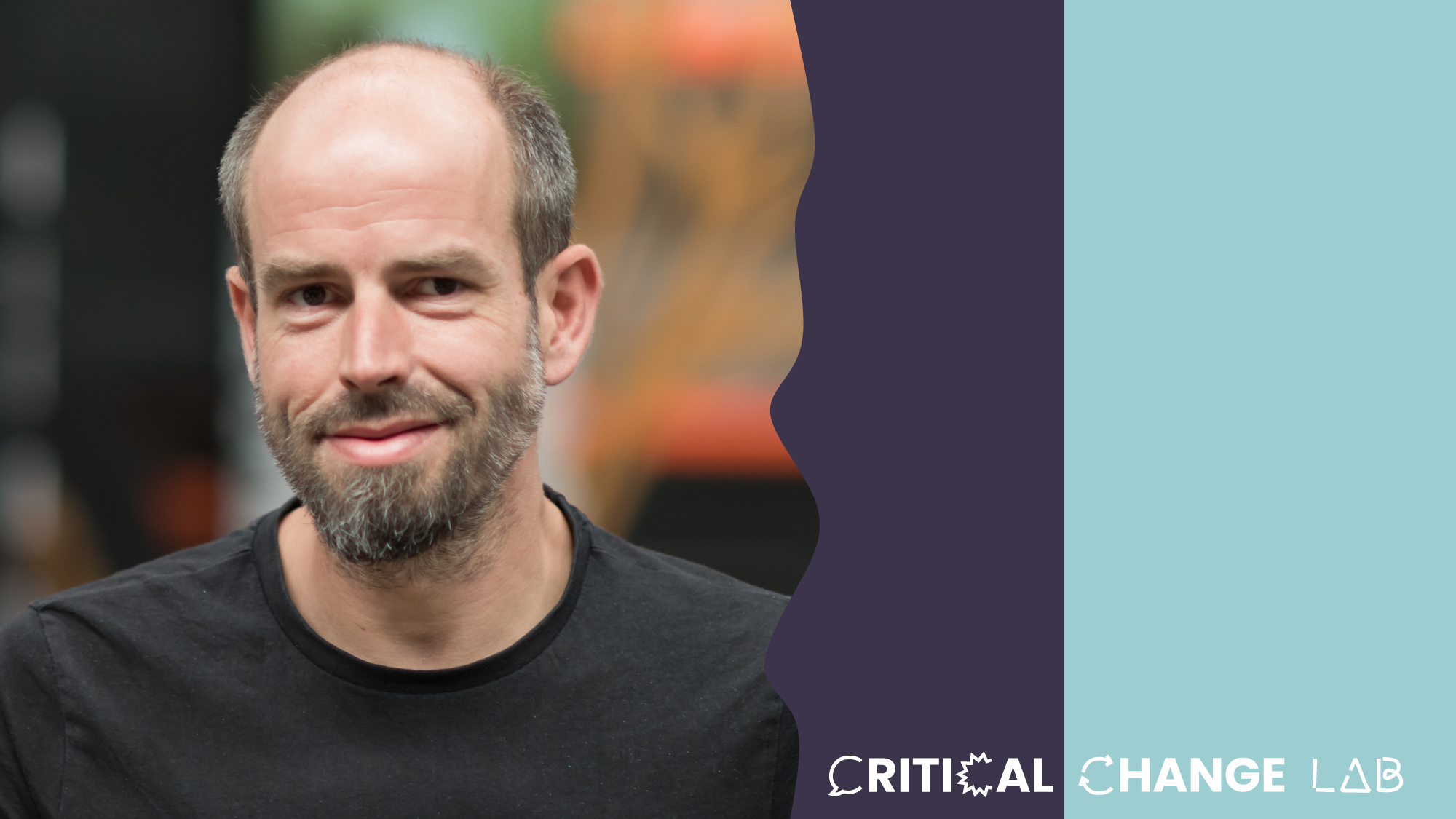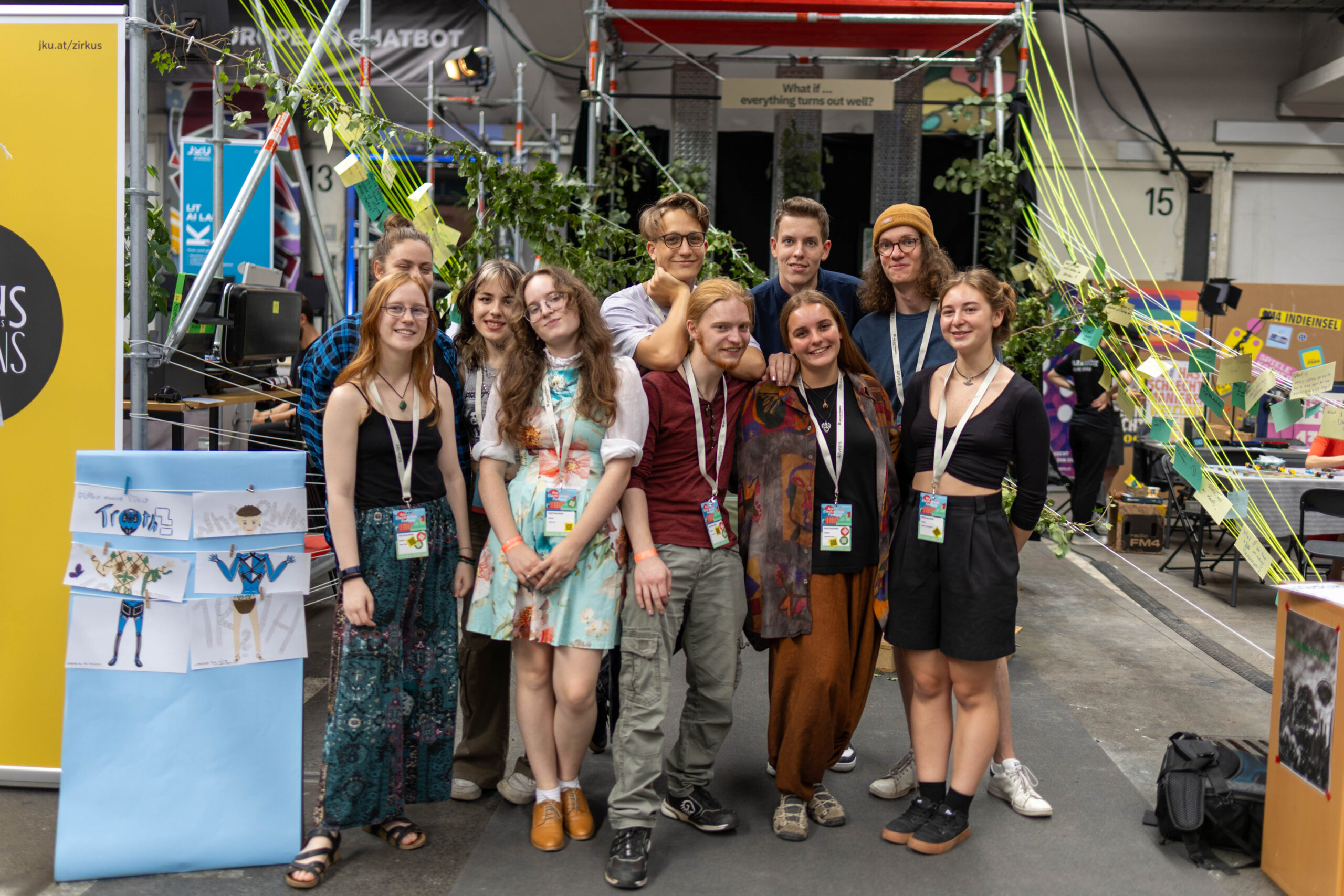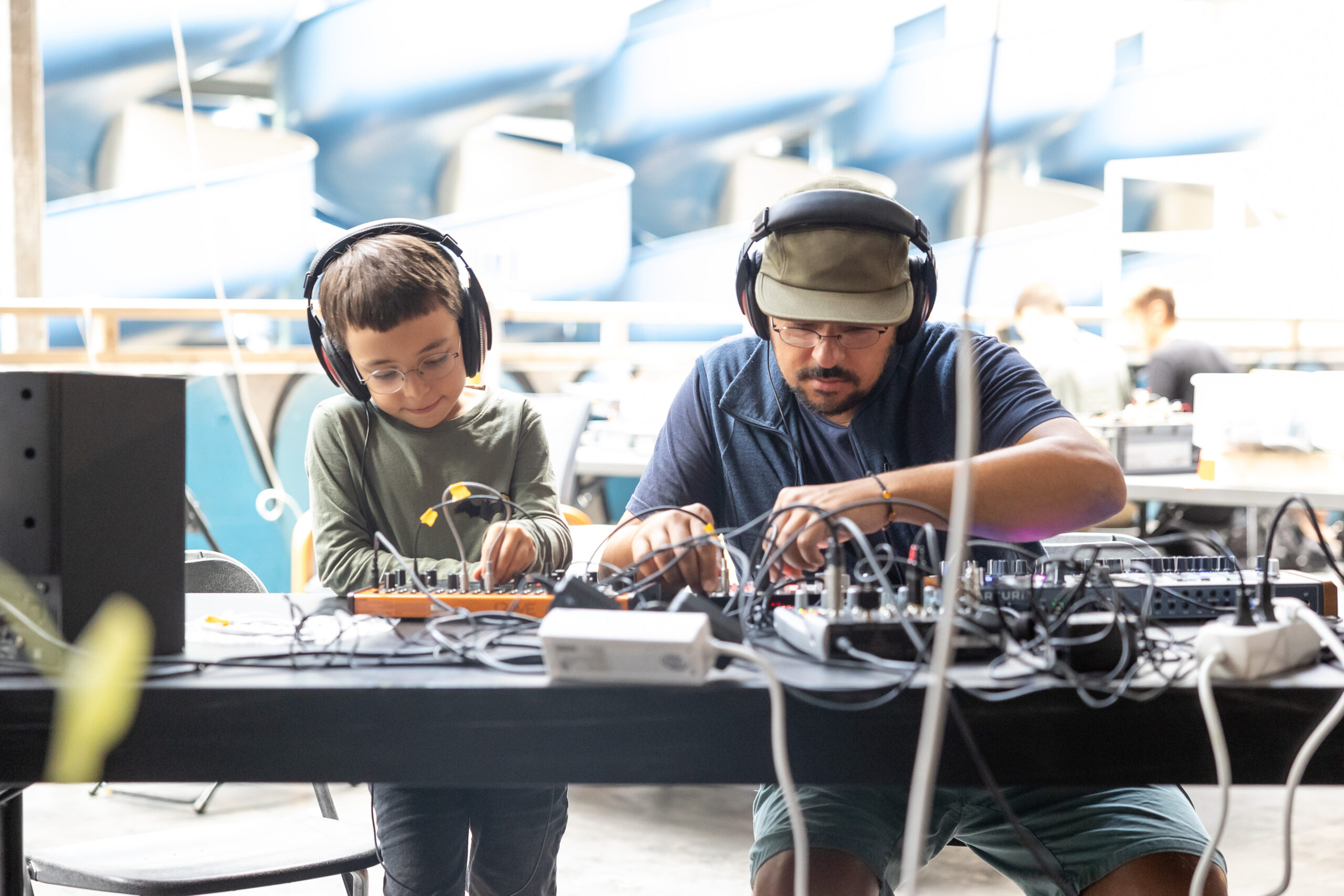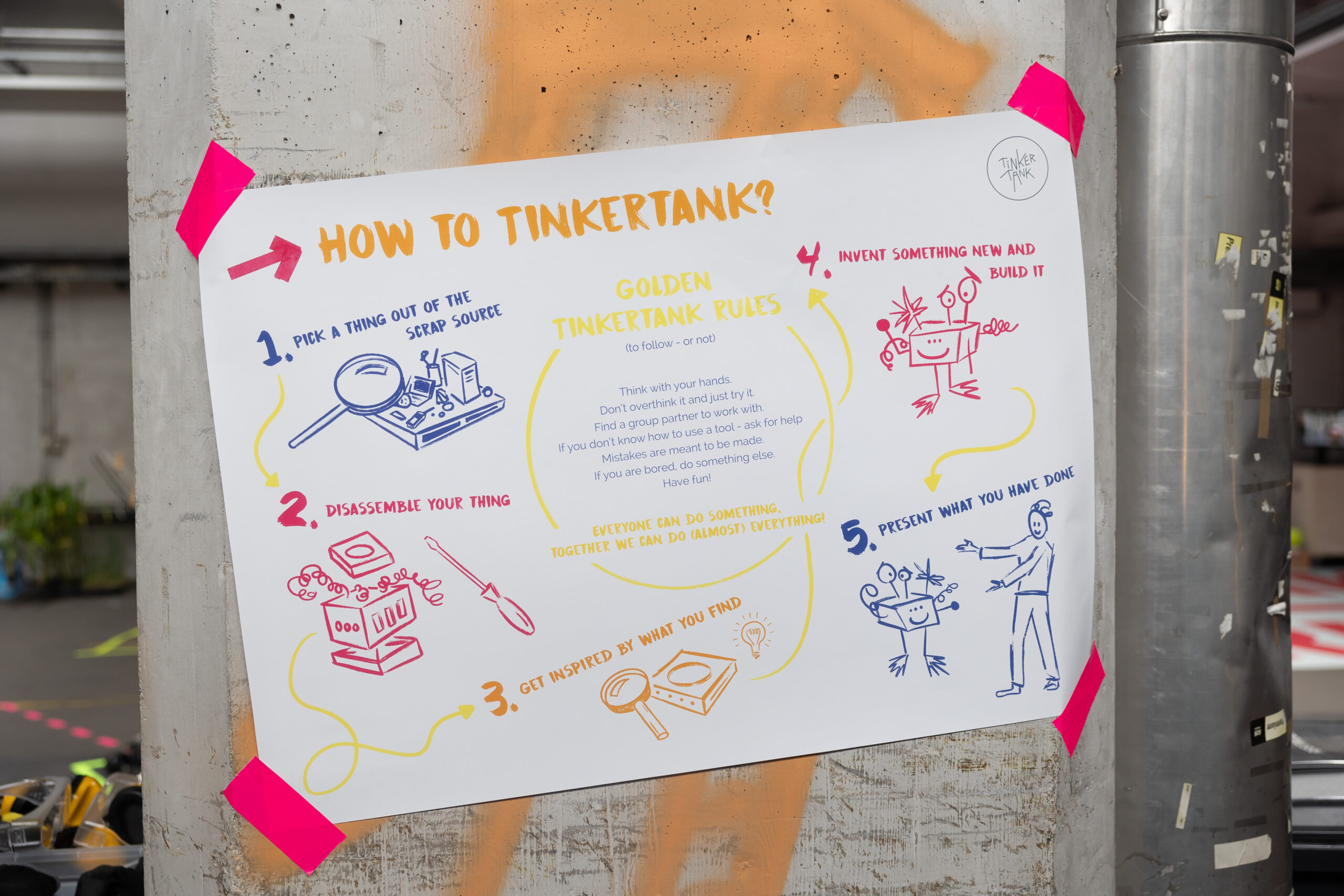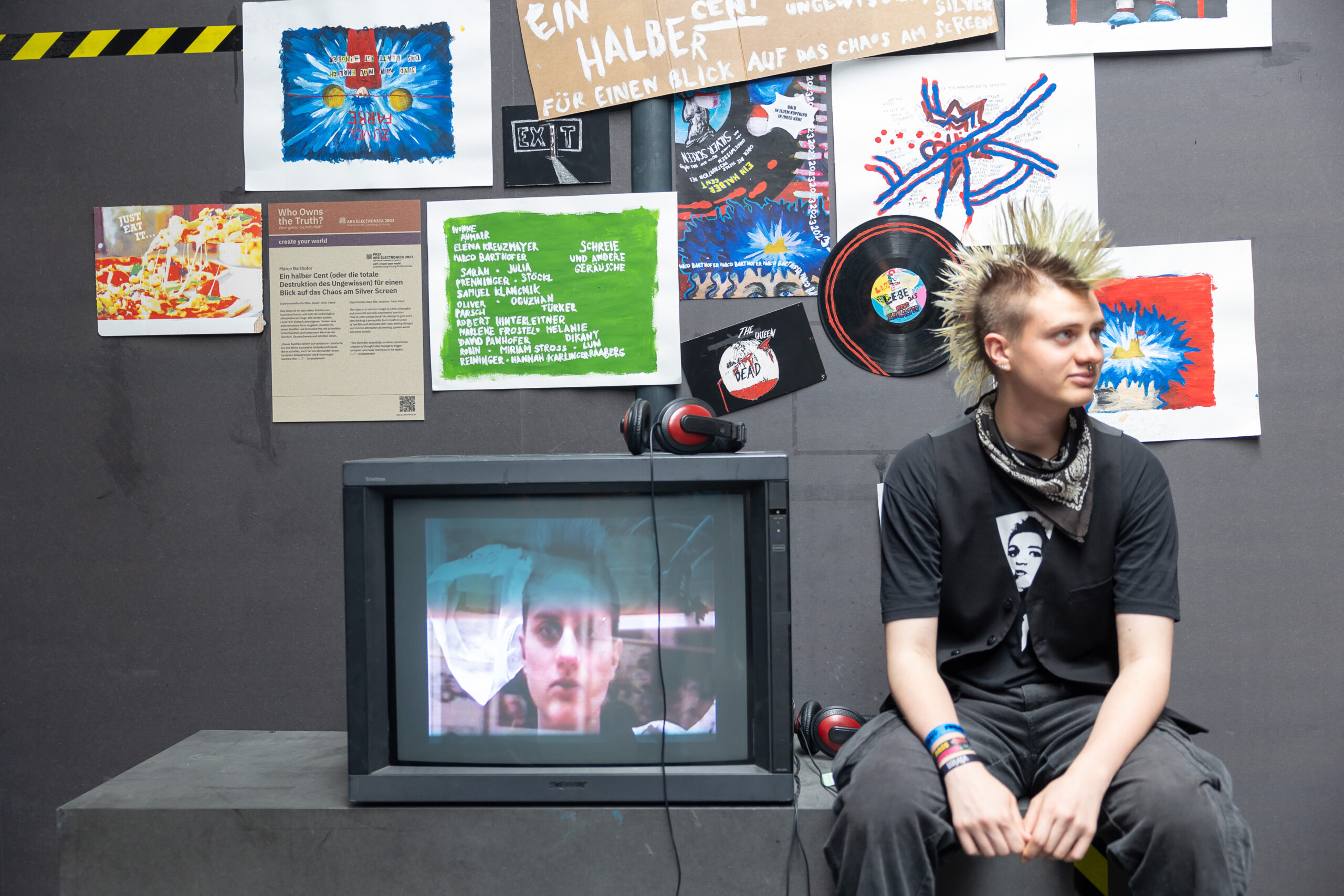Hans Christian Merten of create your world talks to Johanna Lenhart from Ars Electronica about the need for opening up learning spaces and the importance of self-preservation for young people.
Create your world is an initiative of Ars Electronica that is deeply dedicated to finding new ways of learning and creating and invites young people to experiment, explore and develop. create your world is not only concerned with new technological developments, but also attempts to integrate the complex interplay of art, technology and society into everyday life.
Create your world is known as being the “festival within the Ars Electronica Festival”, but what is the mission of create your world and how does it fit in the wider context of Ars Electronica?
create your world is an initiative that accompanies young people and tries to reshape their world. Our approach is to move away from lecture-style teaching, from these formats where something is being told to me. We actually turn it around and try to create a comfort zone and an opportunity to think about, well, is this a topic I want to go into a little bit more? We are an asynchronous learning center, if you like. Create your world is not only the festival! There are three main pillars to create your world: the Prix Ars Electronica u19, the create your world festival and the create your world tour.
The first pillar is the Prix Ars Electronica u19-create your world. In this competition, we ask young people up to the age of 19 very open questions: What ideas do they have for shaping the world of tomorrow? What does their world look like? We always receive very, very diverse views, projects, ideas and concepts. It’s very much about gaining a little insight into their lives, their concerns and their desires, which is very important for us.
The second pillar is of course the create your world festival, which takes place as part of the Ars Electronica Festival, where these winning projects will be exhibited. And around the u19 exhibition, we have open labs, which, however – and this is very important – are deliberately not aimed exclusively at young people, but at all age groups, because the create your world festival invites you to do things, to make things. For us, this is an opportunity to establish new learning models. And we have been doing this for many, many years.
So, your aim is to create a space where people can think for themselves and try things out?
Yes, exactly. You can try things, you can experiment. You can also fail. And create your world should be that first point of contact for people who may have no experience at all with certain technologies. What we always really notice is this immersion in something that is happening. That’s amazing to see.
We ask young people up to the age of 19 very open questions: What ideas do they have for shaping the world of tomorrow? What does their world look like?
And the third pillar is the create your world tour?
Exactly, it’s been in existence since 2015, and it’s a very exciting program in which we bring projects from the Prix Ars Electronica u19 and the festival directly into schools. The development of technology in particular is so rapid that it can never be integrated into a relatively static education system. And that’s a good starting point, the program is incredibly well received.
How does the Critical ChangeLab support the mission of create your world?
The relevance of create your world to civil society has changed more and more, especially in recent years. You can see that very clearly. In the past we have of course done projects with young people, some of them very critical, about different forms of activism and protest. The theme of participation is very interwoven with our world. So, it’s actually very, very logical that the Critical ChangeLab is integrated into create your world.
It has to be more about self-preservation – as difficult as it may seem – because the prospects are very dystopian.
In the Critical ChangeLab you will be working with a group of young people who participated in the Prix Ars Electronica-u19 with their project Meditações that deals with finding a way to identify and express their emotions. How does this project fit into the Critical ChangeLab project? Why did you make this connection?
It is a project that combines in a short film the repetitive, know-it-all language of a teacher with images of growing desperation. The young people have presented this artistically in such a way that it is dystopian and hopeful at the same time. And I was inspired by that, because in a world where young people are told the same thing over and over again, you feel powerless. There are certain things that don’t change. And at the same time, they are told that the school system’s job is to prepare them for the real world, where everything is constantly changing. This is a contradiction that naturally triggers all kinds of emotions: anger, frustration and disbelief.
Young people take to the streets with these feelings, and it is seen as a good thing, as the responsibility of young people. And that is a problem. It’s the job of society as a whole, and that brings us back to frustration. The artists here are expressing that. But they don’t do what’s expected of them, which is to get upset. That impressed me, because that’s the way I want to go with create your world, it has to be more about self-preservation – as difficult as it may seem – because the prospects are very dystopian. Nevertheless, we have to try to take care of our personal and mental well-being, because that is the only way we can give something back.
Very interesting! To come to an end: What are you most excited about in the Critical ChangeLab?
I would be very happy if the whole thing would be able to initiate something where a lot of people exchange ideas without immediately thinking about an output. Paradoxically, these days we may have to take the time for that, even though time is running out. And I would be thrilled if Critical ChangeLab could perhaps lead to a little more unity and bring the bubbles together a little. That the bubbles become one big bubble, so to speak, or at least a few bigger ones.
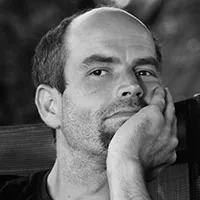
Hans Christian Merten has headed Ars Electronica’s u19 – CREATE YOUR WORLD division since 2013. He studied audio technology & design in Vienna and completed various programs at Bruckner University in Linz. From 2002 to 2010, he taught at the Upper Austria University of Applied Sciences’ Hagenberg Campus (media technology & design) and at the High School for Communication and Media in Freistadt. 2010-13 he served as artistic director of the multiple-prizewinning festival “kult – das neue Mühlfestival” in Freistadt. Since 2005, he’s been a freelance artist and director of the Music for Film & Media project studio in Gutau, Upper Austria.
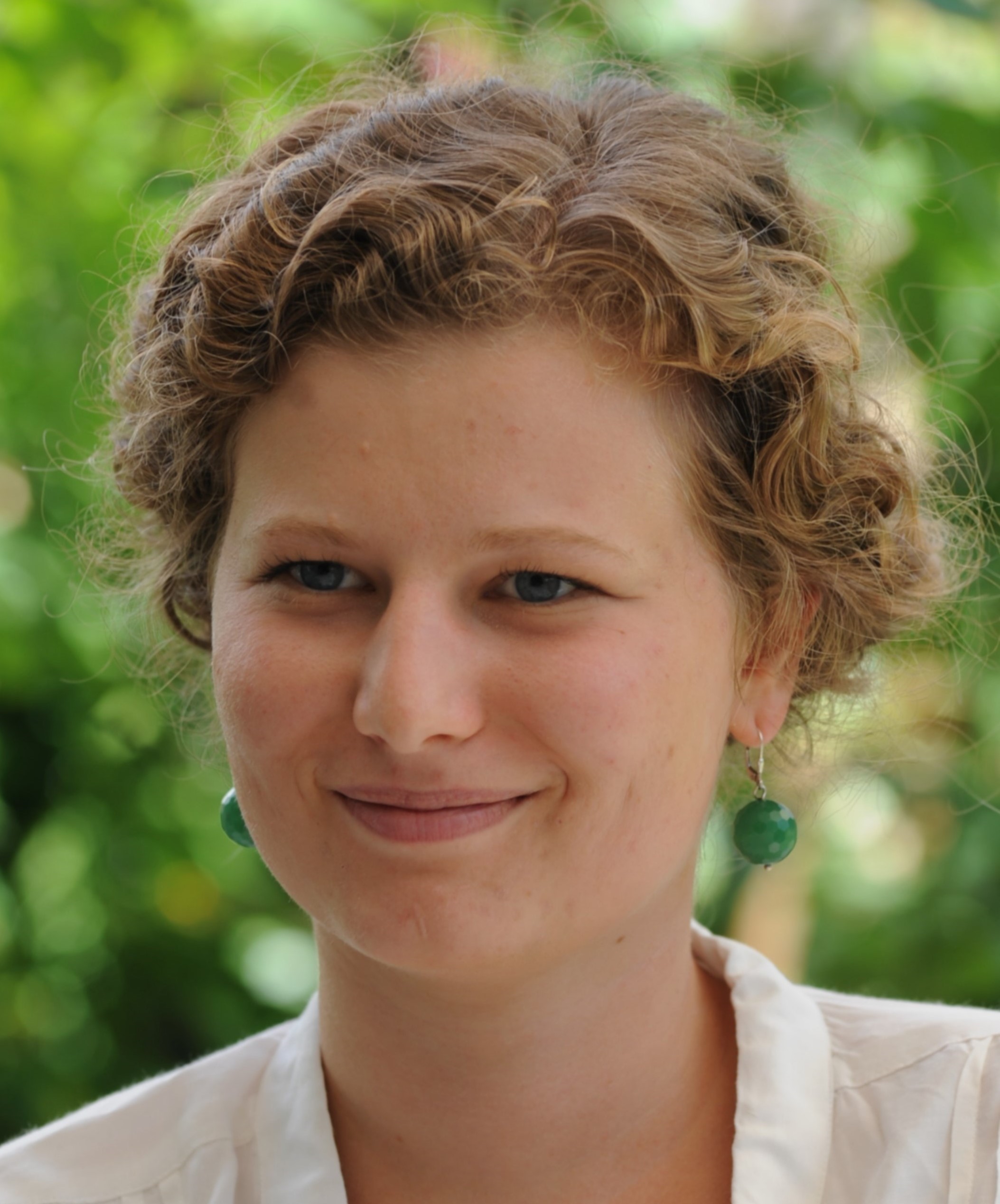
With a background in German philology and comparative literature, Johanna Lenhart taught as OEAD lecturer at universities in Egypt and the Czech Republic before joining Ars Electronica in 2023. Her teaching and research focus on narrative practices in different media and contexts, with a passion for how storytelling shapes our past, present and future. Johanna is also a member of the editorial team of the journal medienimpulse. Beiträge zur Medienpädagogik.
